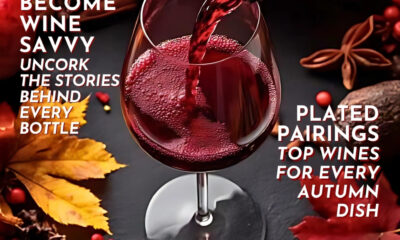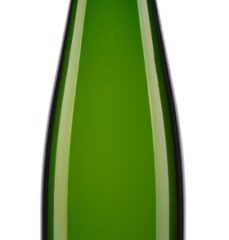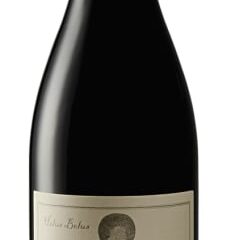Wine Business
Natural Wines: The Rise of Minimal Intervention
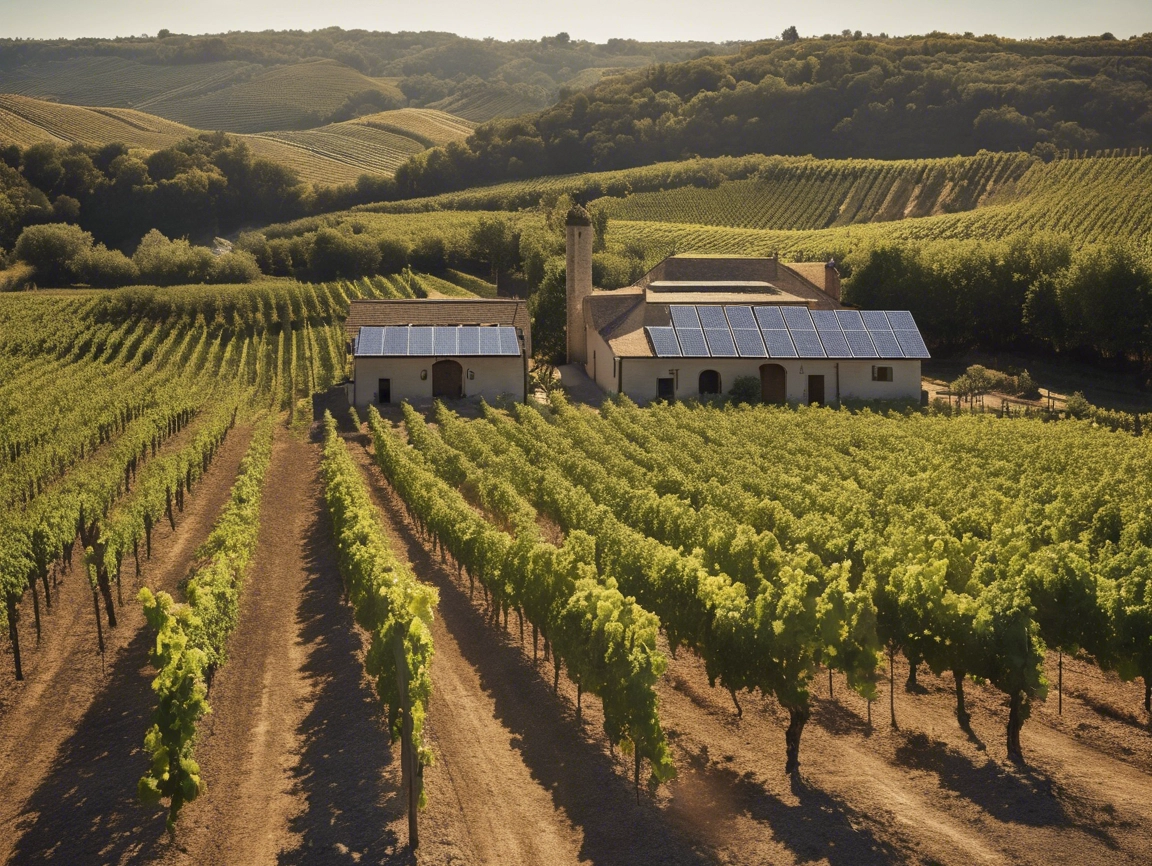
In recent years, the wine world has witnessed a burgeoning trend that is both a nod to tradition and a step forward in sustainable and health-conscious winemaking: natural wines. This movement, characterized by minimal intervention in both the vineyard and the winery, is attracting a new generation of wine enthusiasts who value authenticity, environmental stewardship, and unique flavor profiles.
The Philosophy Behind Natural Winemaking
At its core, natural winemaking is about letting nature take its course with as little human intervention as possible. This philosophy stems from a desire to return to traditional methods of viticulture and vinification, avoiding the use of synthetic chemicals, additives, and overly manipulative techniques. Natural winemakers often adhere to organic or biodynamic farming practices, emphasizing the health of the soil and the vines, which in turn leads to healthier grapes and more expressive wines.
The principles of natural winemaking include:
- No Synthetic Chemicals: Natural vineyards avoid the use of pesticides, herbicides, and synthetic fertilizers, relying instead on natural methods to manage pests and nourish the soil.
- Hand-Harvesting: Grapes are typically harvested by hand to ensure that only the ripest, healthiest grapes are selected.
- Native Yeasts: Fermentation is carried out by the wild yeasts naturally present on the grape skins and in the winery environment, which can contribute to more complex and terroir-driven flavors.
- Minimal Additives: The use of additives such as sulfur dioxide is kept to a minimum or eliminated entirely. Sulfur dioxide is often used in conventional winemaking to stabilize the wine and prevent spoilage, but its use in natural winemaking is highly debated and varies among producers.
- Unfiltered and Unfined: Many natural wines are left unfiltered and unfined, resulting in a cloudy appearance and a richer texture. This approach also preserves more of the wine’s natural flavors and aromas.
Environmental Benefits
Natural winemaking is closely linked with sustainability and environmental stewardship. By avoiding synthetic chemicals and focusing on biodiversity and soil health, natural winemakers help to maintain and enhance the ecosystem of their vineyards. This not only results in healthier vines and higher-quality grapes but also promotes a more sustainable and resilient agricultural practice.
Additionally, the emphasis on local and seasonal production reduces the carbon footprint associated with transportation and large-scale industrial farming. Consumers who choose natural wines are often supporting small, independent producers who are committed to environmentally friendly practices.
Unique Flavor Profiles
One of the most compelling aspects of natural wines is their unique and often unpredictable flavor profiles. Because natural winemaking relies on wild yeasts and minimal intervention, each bottle can offer a distinct expression of its terroir and vintage. This variability and authenticity appeal to wine enthusiasts who appreciate the individuality and character of each wine.
Natural wines often exhibit a vibrant freshness, with lively acidity and a range of flavors that can include earthy, funky, and sometimes slightly sour notes. These wines are often described as more “alive” and dynamic compared to their conventional counterparts. For those willing to explore and embrace the diversity of natural wines, the rewards can be incredibly satisfying.
Pioneering Winemakers
Several pioneering winemakers have been at the forefront of the natural wine movement, each with their unique approach and philosophy. Here are a few notable figures:
- Alice Feiring: A prominent wine writer and advocate for natural wines, Alice Feiring has been instrumental in bringing attention to the natural wine movement. Her books and articles have helped to educate consumers and celebrate the work of natural winemakers.
- Frank Cornelissen: Based in Sicily, Frank Cornelissen is known for his extreme approach to natural winemaking. His vineyards on the slopes of Mount Etna are cultivated without any synthetic inputs, and his wines are made without added sulfur or filtration, resulting in some of the most expressive and terroir-driven wines in the natural wine world.
- Jules Chauvet: Often referred to as the godfather of natural wine, Jules Chauvet was a French chemist and winemaker whose research and practices laid the groundwork for many of the principles of natural winemaking. His work in the Beaujolais region has inspired countless winemakers to adopt minimal intervention techniques.
Tips for Choosing and Enjoying Natural Wines
For those new to natural wines, here are some tips to help you choose and enjoy these unique beverages:
- Research and Explore: Start by researching natural wine producers and regions known for their commitment to minimal intervention. Wine shops specializing in natural wines can be great resources for discovering new and interesting bottles.
- Embrace the Variability: Natural wines can vary significantly from bottle to bottle, even within the same vintage. Embrace this variability as part of the charm and adventure of natural wine.
- Pair with Food: Natural wines often have vibrant acidity and complex flavors that make them excellent companions to food. Experiment with different pairings to enhance both the wine and the meal.
- Store Properly: Because natural wines often contain minimal preservatives, they can be more sensitive to temperature and light. Store them in a cool, dark place to maintain their quality.
Conclusion
The rise of natural wines reflects a growing desire among consumers for authenticity, sustainability, and unique flavors. By embracing minimal intervention and focusing on the health of the vineyard ecosystem, natural winemakers are producing some of the most exciting and distinctive wines available today. Whether you are a seasoned wine enthusiast or new to the world of wine, exploring natural wines can offer a rewarding and enlightening experience.

-

 Wine Industry News4 months ago
Wine Industry News4 months agoMajor Wine Mergers and Acquisitions in 2024: A Year of Strategic Consolidation
-

 Wine Reviews4 months ago
Wine Reviews4 months agoReview of Jam Jar Sparkling Sweet Red NV
-

 Wine Collecting4 months ago
Wine Collecting4 months agoRecommended Apps for Tracking Your Wine Inventory
-

 Wine Industry News5 months ago
Wine Industry News5 months agoWelcome to Wine Savvy Magazine
-
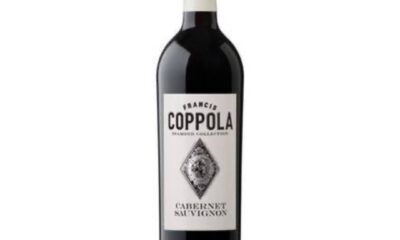
 Wine Reviews5 months ago
Wine Reviews5 months agoReview of Francis Ford Coppola Cabernet Sauvignon
-
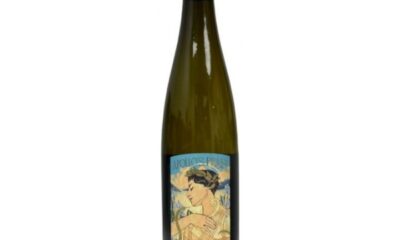
 Wine Reviews4 months ago
Wine Reviews4 months agoReview of Apollo’s Praise Riesling 2024
-
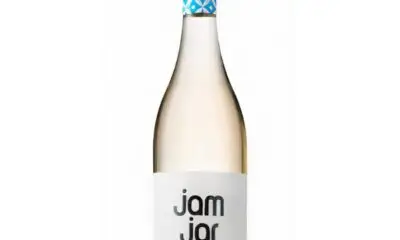
 Wine Reviews4 months ago
Wine Reviews4 months agoReview of Jam Jar Sweet White Moscato – 2021 Vintage
-

 Wine Reviews4 months ago
Wine Reviews4 months agoMass Production Over Mastery: A Critical Review of Barefoot Bubbly Pink Moscato California Champagne NV
